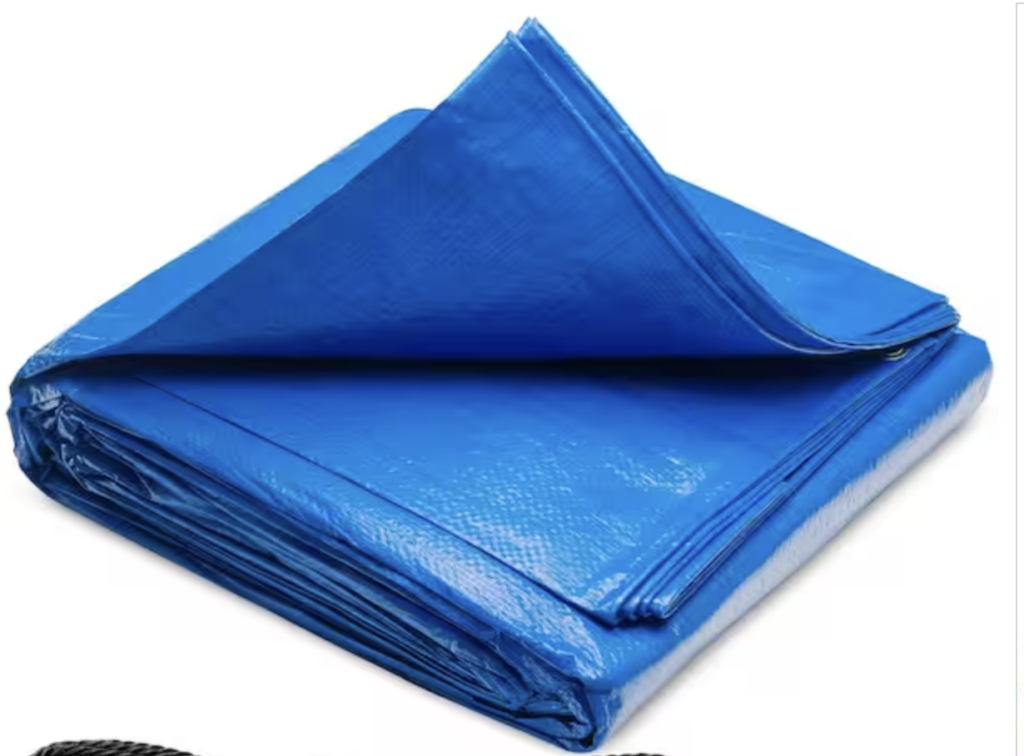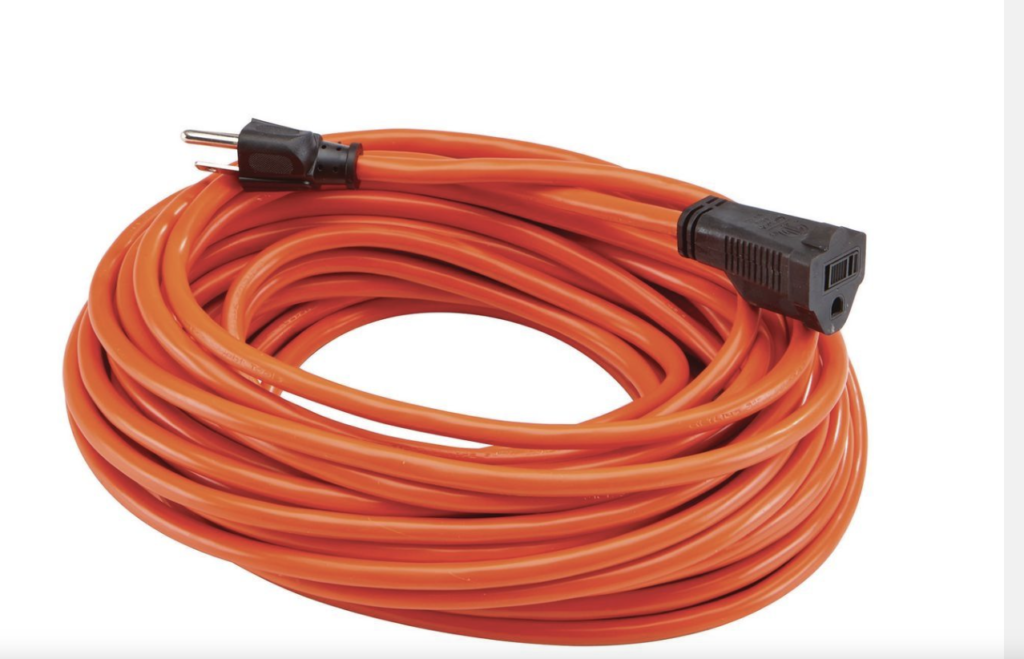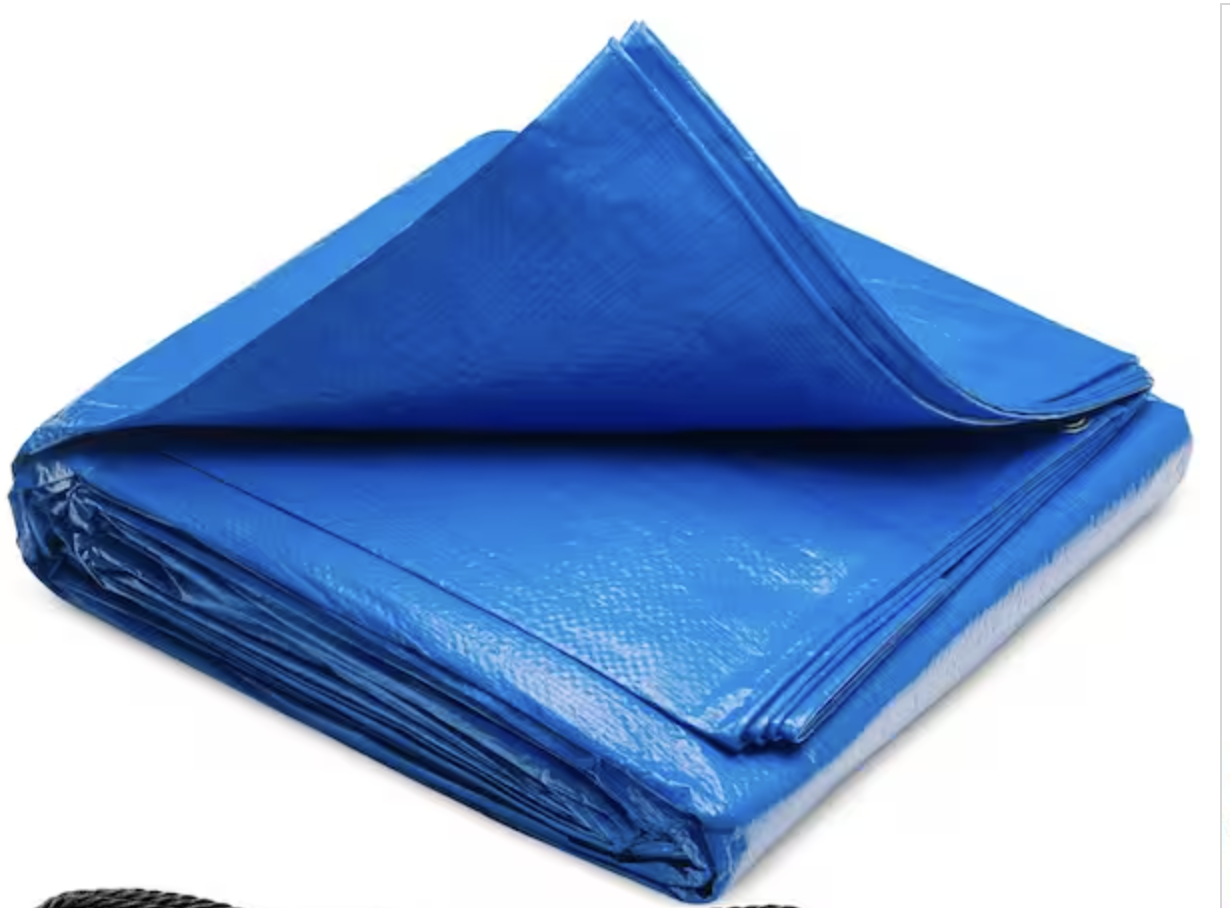Frost Protection
There is a possibility of a damaging frost whenever the temperature drops below 38 degrees. You can protect your mirliton with either a minimum or maximum plan.
Minimum plan: Tent the vine the day before with a tarp or 4mil plastic cover. A FEMA tarp will work well. Weight down the edges of the tarp with bricks (you are trying to trap the heat from the soil inside the enclosure). This will raise the temperature a few degrees and may avert the frost.
Maximum plan: Add heat to the tent. You will need an extension cord and a small space heater. A space heater will raise the tent’s internal temperature several degrees, which will protect the vine if temperatures dip to 32 degrees. There are also portable gas heaters. Buy a remote thermometer and place the sending unit in the tent enclosure and you will be able to see exactly what the internal temperature is. Remote thermometers will permit you to see what the temperature is in the tented trellis from the comfort of your home. They are the best defense against a freeze–and cost only
$20. Buy it here.



